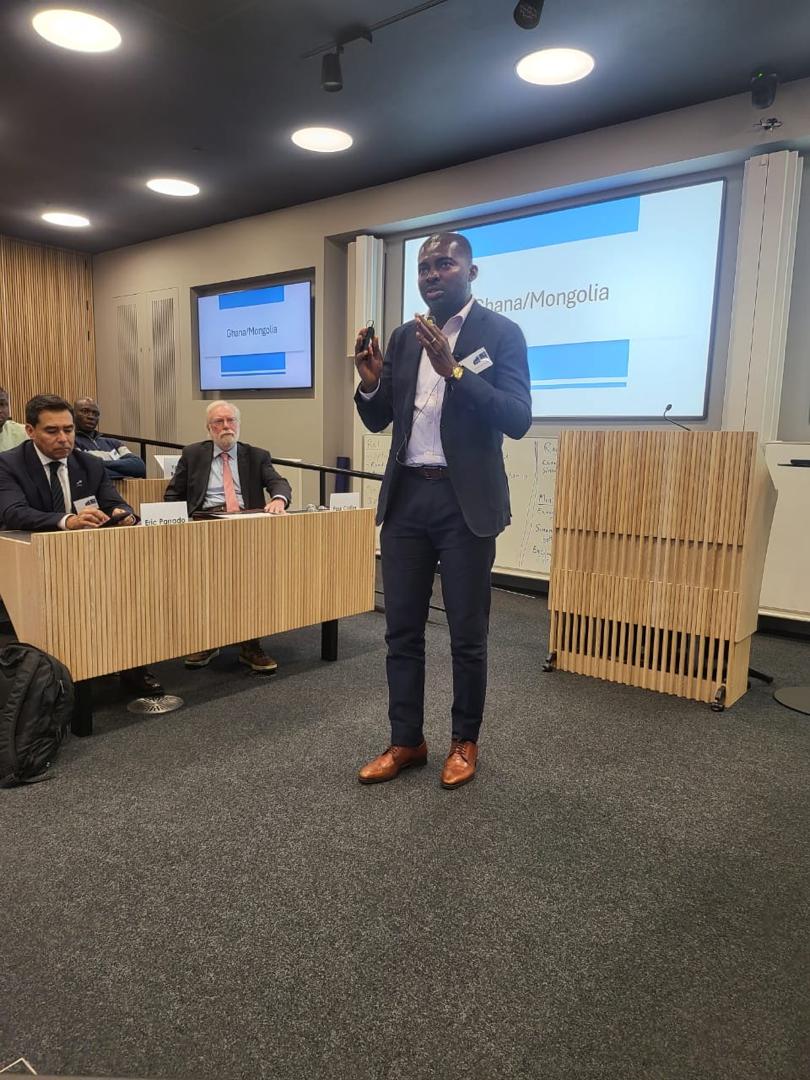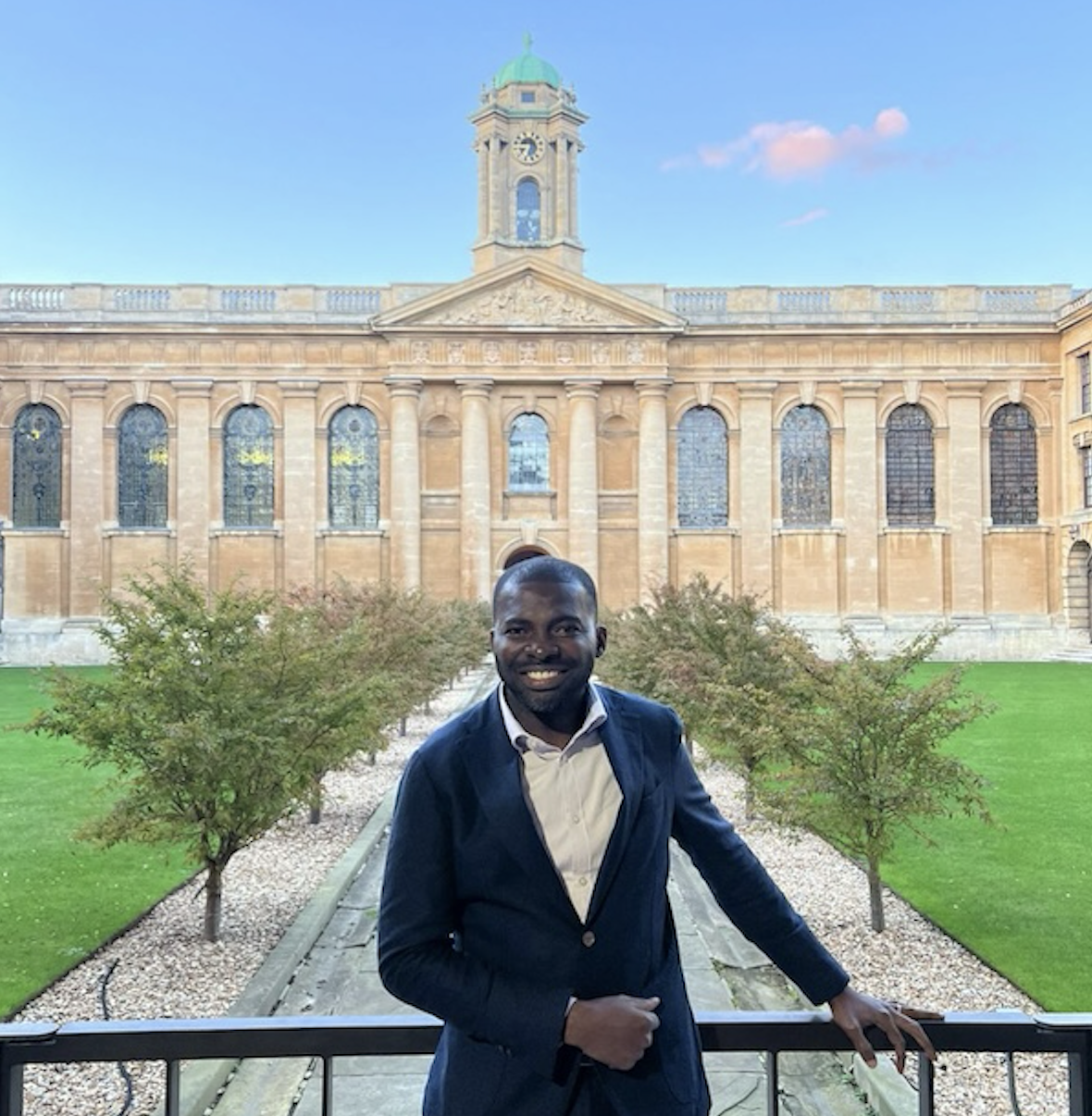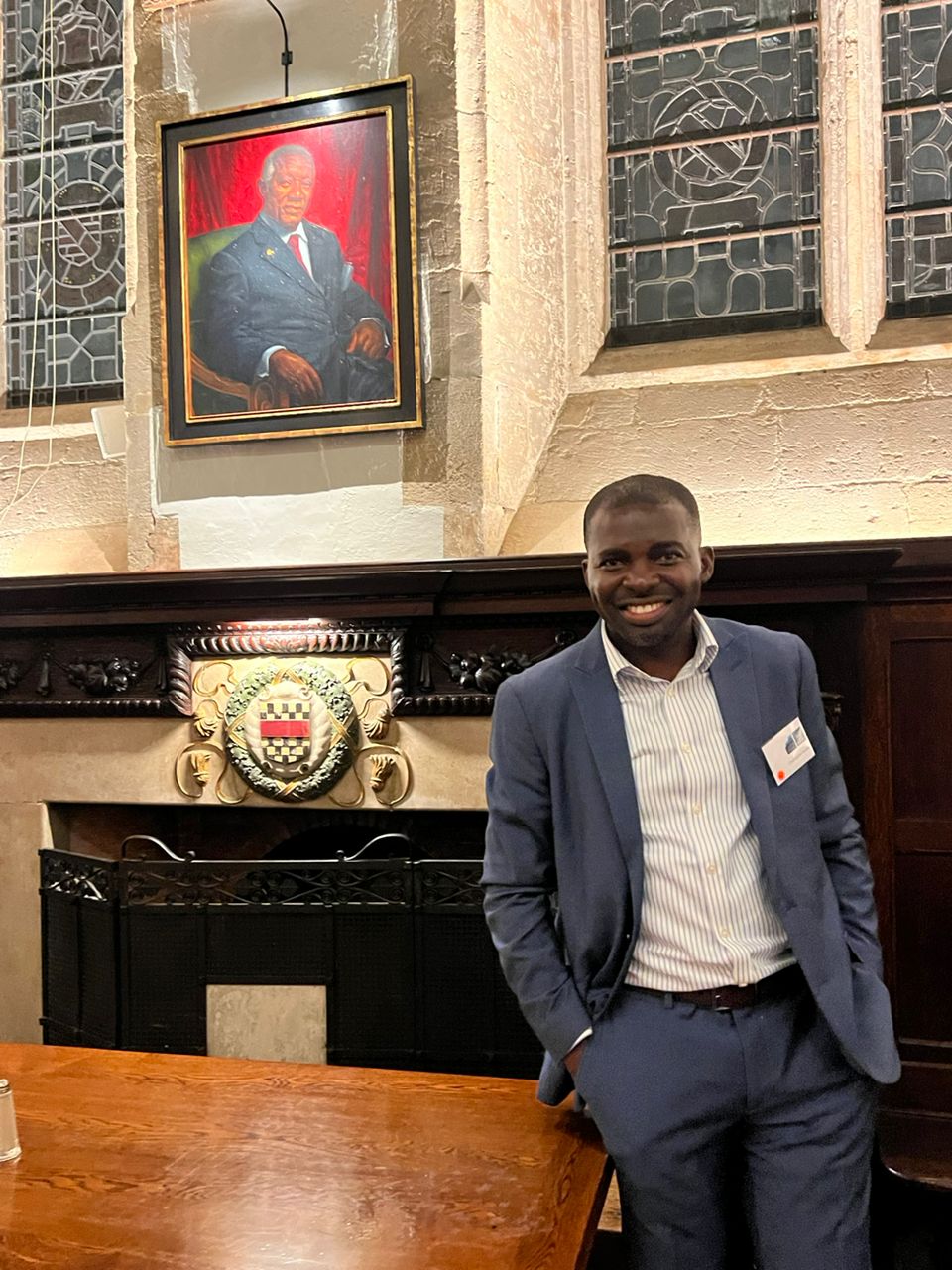My Oxford Journey
Christopher Nyarko looks back at his time on the Managing Mining, Oil and Gas for National Development executive programme.
The Blavatnik School of Government has a stellar reputation for its talented faculty and a rare ability to seamlessly interweave theory with practice in an environment that recognises and taps into each student's unique experience.
As a professional seeking to advance my expertise in the extractive sector, expand my professional network, and learn from the experiences of other countries, I found the Managing Mining, Oil and Gas for National Development executive programme ideal for my next career milestone.
After learning about the programme from a mentor and speaking to some of the programme’s alumni in Ghana, I prepared a personal statement highlighting the unique challenges of Ghana’s extractive sector, my role in improving outcomes in the sector, and how experiences and knowledge gained during the course would enhance my efforts.

The programme’s inaugural activity, a ’speed date’, connected me with professionals from five continents and provided insights into extractive sectors worldwide. Talking with a participant from Malawi who works with the country’s tax authority exemplified the programme’s collaborative spirit; how, she asked, could she get more taxes from mining companies? We exchanged ideas on enhancing benefits from natural resource extraction, of course, including taxes!
The programme’s well-structured curriculum progressively built participants' knowledge by addressing traditional and contemporary issues in the extractive sector. The content on taxation, climate change, revenue collection and management, and local content and industrial development was very relevant to the context of the sub-Saharan African region. The faculty’s teaching style was interactive and allowed participants to share their experiences. This made it easy to compare practices in our various countries and learn to improve outcomes.
I was thrilled to learn that Professor Philip Daniel, a lead author of International Monetary Fund (IMF) taxation publications that I regularly rely on, was part of the programme’s faculty. He was generous with his time to discuss my approach to using IMF formulae.
The group sessions and presentations were particularly useful for peer learning and social bonding. I was fortunate enough to be paired with a participant from Mongolia, a country I knew little about, who not only became a good friend but gave me a good appreciation of the unique features of the Mongolian extractive sector. She subsequently invited me to speak at an event on the extractive sector in Mongolia.
A key highlight of the group tasks was negotiating a mining contract in a fictional country with coveted mineral deposits but complex social, political, and infrastructural challenges. The task taught me the importance of building trust, stakeholder engagement and creative problem-solving. It was tiring, frustrating, and sometimes felt hopeless, but as we followed the instructions for the exercise, we were rewarded with a spectacular agreement that was mutually beneficial to all parties, including a phantom separatist country. 
Beyond academics, our tour of Oxford showcased stunning architecture and historical significance. Our guide’s account of how individuals donated to support various Colleges several centuries ago inspired in me a plan to replicate something similar in Ghana.
With his guidance, we discovered good places to unwind or take a stroll after the intensive class sessions and pathways. I particularly enjoyed the thoughtful service and food at Porterhouse Grill and Rooms. The history of the Colleges, was also highly informative and insightful. The dinners at Queens and Exeter Colleges are steeped in tradition, with the portrait of Ghana’s former President, John Agyekum Kufuor, adorning the walls of Exeter College.

The programme’s impact is timeless; I have been equipped with cutting-edge knowledge, tools, and a global support network to positively influence policy and practice in the ever-evolving extractive sector. It is a must-attend, knowledge-gaining forum for anyone seeking to push the boundaries of good governance in the extractive sector.
The Managing Mining, Oil and Gas for National Development is a five-day executive programme that provides the training and insight required for policy leaders in the public and private sector to work towards better management and governance of mining, oil and gas for a better future.

